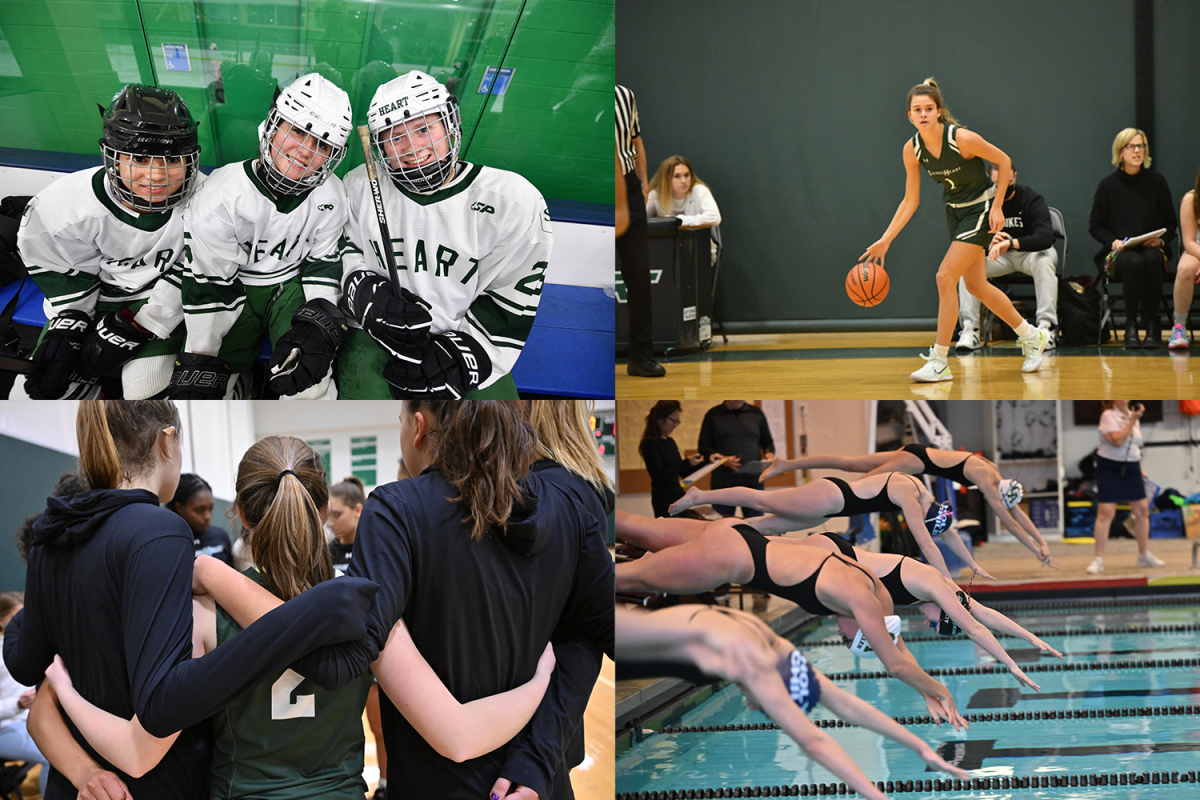Participation in sports throughout the year, specifically during the winter months, serves as a healthy outlet for students, offering a variety of physical, mental, and social benefits. As the colder season progresses and outdoor activities become limited, sports emerge as an invaluable means of maintaining well-being and fostering a positive mindset. Beyond the physical and mental advantages, the social aspect of sports further contributes to a sense of community, providing opportunities for camaraderie and connection, which are particularly uplifting during the winter months.

The positive impact of winter sports may extend to academic and physical achievement. Children who engage in sports or physical activity are 15 percent more likely to attend college. Student-athletes earn up to 40 percent higher test scores. Former student-athletes tend to earn significantly higher incomes than those who do not play sports, according to atyourownrisk.org. These statistics underscore the benefits of integrating sports into the educational experience, potentially contributing to a well-rounded academic journey for students.
Having time to exercise and socialize with a team allows students to balance their personal lives with their academics during the winter season. Junior Kathryn Herman rows for the crew team at Sacred Heart Greenwich. She spoke about the positive impact of winter sports, emphasizing the crucial role these activities play in maintaining personal well-being and mental health outside of the classroom.
“Definitely, not having a winter sport can affect one’s mental health,” Kathryn said. “Having something to do besides school work during the academic week is very important, especially in the winter, because going outside is normally not an option.”

Beyond the immediate health benefits, participation in winter sports cultivates essential life skills. Teamwork, discipline, and perseverance become ingrained in the character of student-athletes, preparing them for the challenges they will face in academic and professional pursuits. The sense of camaraderie built on the court, rink, or in water translates into improved interpersonal skills, aiding students in forming meaningful connections both inside and outside the classroom.
Ms. Lilly O’Sullivan ’17, Assistant Athletic Director, echoed this sentiment, highlighting the positive effects of exercise on physical and academic growth for student-athletes.
“Exercise has a positive impact always because it releases endorphins and it’s a nice way to take a break from schoolwork and have fun,” Ms. O’Sullivan said. “I think it benefits during the school year because winter can be sad, and it helps you have a break in the school day.”
The structured routine of practice sessions and competitions instills a sense of responsibility and time management in students. The ability to balance sports commitments with academic responsibilities not only enhances organizational skills but also teaches lessons about prioritization and dedication. In embracing winter sports, students not only enhance their physical well-being but also cultivate skills that may translate into academic and professional success.
“I think that when you have a team and a sport to rely on during the winter, you have the ability to bond with your classmates and win and lose together, making the colder months more enjoyable overall,” Ms. O’Sullivan said.
Featured Image by Sofia Latrille ’25




